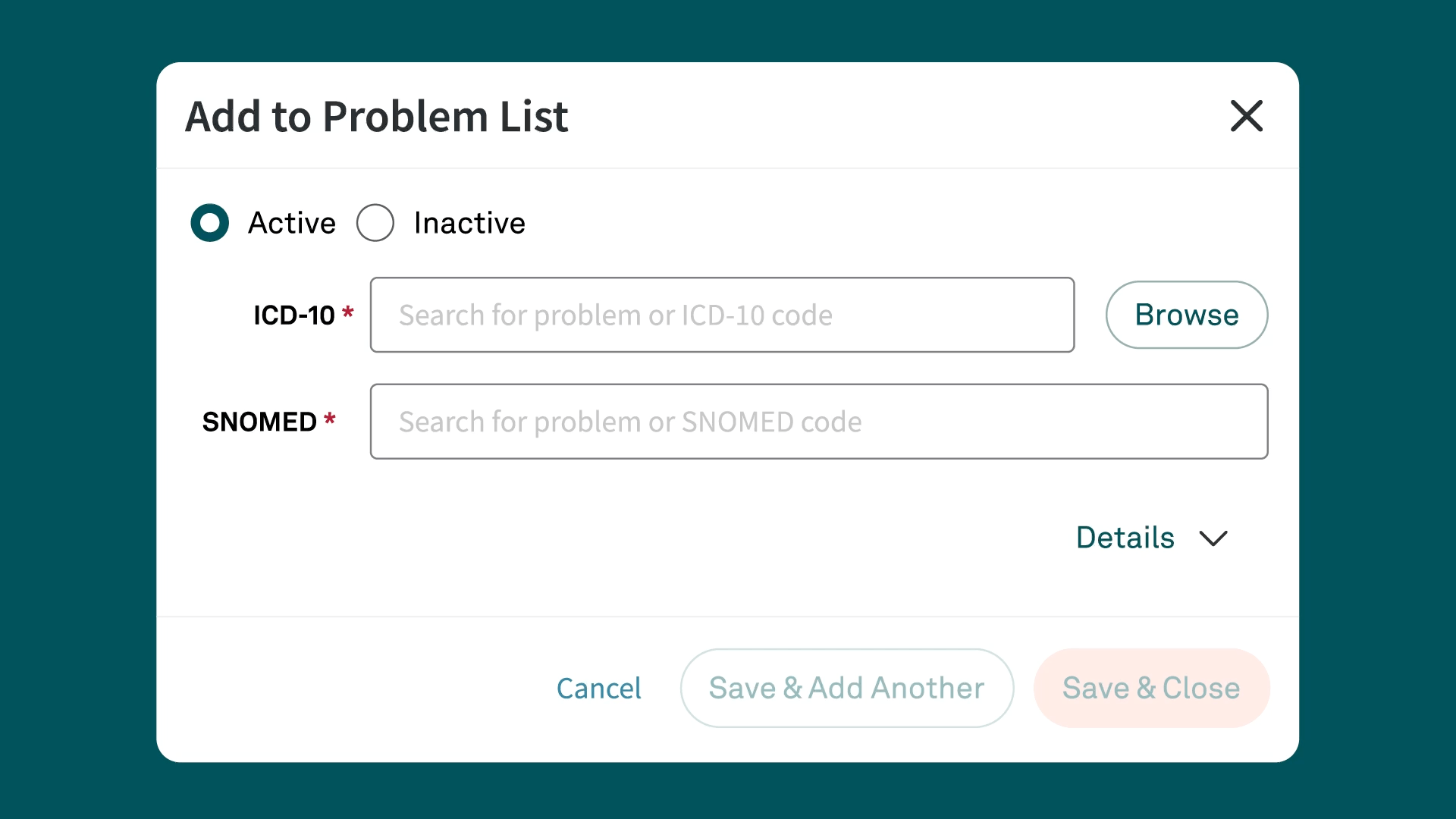ICD-10 Code E78.00
Pure hypercholesterolemia, unspecified
What is the code E78.00?
E78.00 is an ICD-10-CM code used to specify a medical diagnosis of “pure hypercholesterolemia, unspecified.” This code is used by healthcare providers to document and bill for the condition of elevated cholesterol levels in the blood, which is not attributed to any specific underlying cause or type.
Download your free resource now
Access it instantly — just complete the form

Detailed description of E78.00
Pure hypercholesterolemia, unspecified, represented by the ICD-10 code E78.00, refers to a condition where there is an abnormally high concentration of cholesterol in the blood. Cholesterol is a fatty substance essential for the formation of cell membranes, certain hormones, and vitamin D. However, when cholesterol levels become too high, they can lead to the buildup of plaque in the arteries, increasing the risk of cardiovascular diseases such as heart attack and stroke. The term "unspecified" indicates that the elevated cholesterol does not have a determined cause or is not classified under a more specific type.
Symptoms commonly associated with E78.00
Pure hypercholesterolemia itself often does not present with overt symptoms. It is typically detected through routine blood tests that measure cholesterol levels. However, prolonged elevated cholesterol can lead to symptoms related to cardiovascular complications, such as:
- Chest pain or angina
- Shortness of breath
- Pain or discomfort in the arms, neck, jaw, or back
- Numbness or weakness in the limbs, which may indicate a stroke
- Fatigue or dizziness
These symptoms are usually associated with the progression of atherosclerosis, a condition where plaque builds up in the arteries due to high cholesterol.
Related and similar ICD-10 codes
Several ICD-10 codes are related to or similar to E78.00, including:
These codes help in specifying the type and cause of lipid disorders, ensuring accurate documentation and treatment planning.
Appropriate usage and guidelines for E78.00
When using the ICD-10 code E78.00, follow certain guidelines to ensure accurate and appropriate coding:
- Do not assign code E78.00 solely based on diagnostic testing results without provider interpretation. If hypercholesterolemia is confirmed through diagnostic testing, the provider must document this diagnosis in the patient's medical record in order to accurately assign E78.00.
- Use E78.00 only when the elevated cholesterol levels do not fit into a more specific category or when the underlying cause is not determined.
- Distinguish between primary hypercholesterolemia and secondary causes related to other conditions or medications.
- Some additional terms that are coded to E78.00 include:
- Fredrickson’s hyperlipoproteinemia, type IIa
- Hyperbetalipoproteinemia
- Low-density-lipoprotein-type (LDL) hyperlipoproteinemia
- (Pure) hypercholesterolemia NOS
Common pitfalls in coding with E78.00
Several common pitfalls can occur when coding with E78.00:
- Misclassification: Using E78.00 when a more specific code is applicable, such as familial hypercholesterolemia (E78.01).
- Overlooking secondary causes: Not documenting secondary causes of hypercholesterolemia, which might require different coding.
- Documentation: Not including enough documentation in the patient's medical record, including lab results and clinical evaluation, to support the diagnosis. The provider's diagnostic statement is sufficient for coding purposes, but it is best practice to include this information and some payers may deny payment if the medical record documentation does not include this.
- Routine screening: Using E78.00 for routine cholesterol screenings without a confirmed diagnosis of hypercholesterolemia.
Key resources for E78.00 coding
Healthcare providers and medical coders can use several key resources for accurate coding and understanding of E78.00:
- ICD-10-CM Official Guidelines for Coding and Reporting: These guidelines provide comprehensive instructions for using ICD-10 codes.
- American Heart Association (AHA): Resources and guidelines on cholesterol management and cardiovascular risk.
- National Lipid Association (NLA): Educational materials and clinical practice guidelines for lipid disorders.
- Professional coding organizations: Organizations like the American Health Information Management Association (AHIMA) and the American Academy of Professional Coders (AAPC) offer educational resources, certifications, and support for medical coders.
Conclusion
Use ICD-10 code E78.00 to document pure hypercholesterolemia, unspecified, a condition characterized by elevated cholesterol levels in the blood without a specific underlying cause. Proper usage of this code requires accurate diagnosis, documentation, and awareness of related and more specific codes. By understanding the appropriate guidelines and common pitfalls, healthcare providers and medical coders can ensure precise coding, ultimately aiding in effective patient management and billing processes.
Simplify ICD-10 code documentation with Tebra
Tebra’s EHR+ gives you quick searches and Systematized Nomenclature of Medicine (SNOMED) field names for efficient code documentation. Plus, Tebra automatically saves ICD-10 to SNOMED mapping for future searches, streamlining your workflow.

Discover how Tebra helps providers effortlessly document health-related issues and conditions in this detailed post.
Stay Ahead with Expert Healthcare & Billing Insights
Get the latest industry updates, financial tips, and expert strategies — delivered straight to your inbox.


